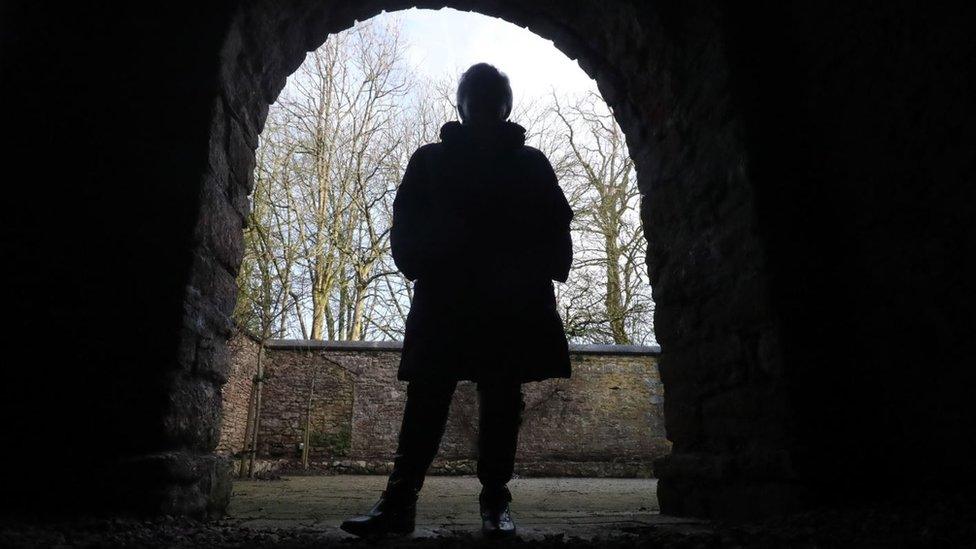Mother-and-baby homes inquiry to be set up in Northern Ireland
- Published
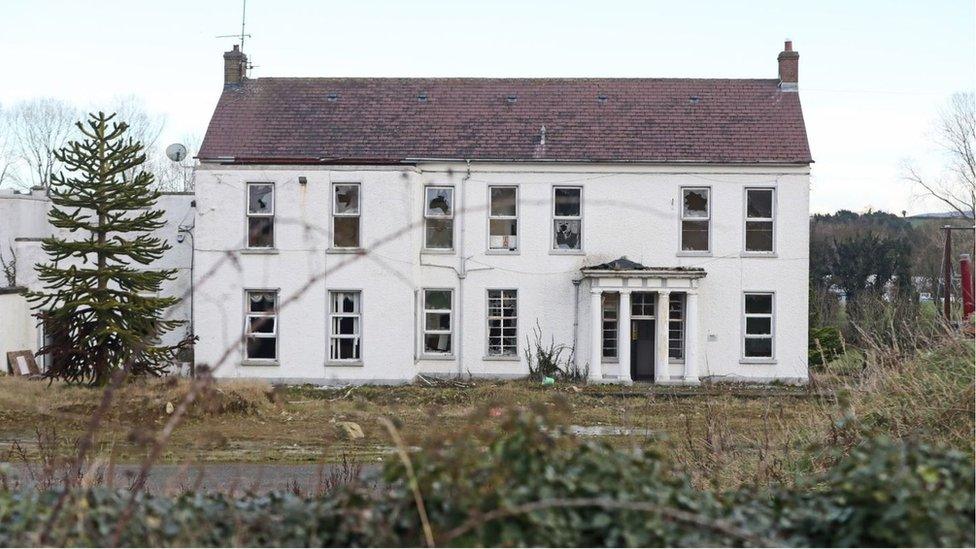
There were several mother-and-baby homes in Northern Ireland, such as Marianvale in Newry
The Stormont executive has agreed to set up a public inquiry into institutions for unmarried mothers in Northern Ireland.
The proposal was one of a series of recommendations ministers were urged to adopt after a panel's report.
On Monday, Deputy First Minister Michelle O'Neill told the assembly all steps would be put in place "as quickly as possible".
That will include setting up immediate redress payments to survivors.
'A momentous day'
Speaking to BBC News NI, Adele Johnston of Birthmothers and their Children for Justice NI said it had been "a momentous day for us", adding that it was "a major milestone on a long, hard journey".
"We know there's a body of work that has to be done, but it's a big day. It's affirmation and recognition of our pain, of what we endured in the mother-and-baby homes. It's also, we hope, a recognition of the shame and stigma we and our children have lived with all our lives."
Ms Johnston and other survivors of the former Marianvale Mother and Baby Home in Newry gathered there on Monday to reflect on the announcement.
"We didn't go to Stormont, we went back there, where all our pain and trauma stemmed from. It was emotional morning but we felt it was where we needed to be," she said.
The devolved government had committed to an investigation after research into mother-and-baby homes and Magdalene laundries was published earlier this year.
Women had given evidence that they were detained against their will, used as unpaid labour and had to give up babies for adoption.
Survivor-led investigation
The primary recommendation was to establish an "integrated investigation" by a non-statutory independent panel, feeding into a statutory public inquiry.
There are also further recommendations for supporting measures to ensure that victims and survivors could participate in the investigation, including access to records legislation.
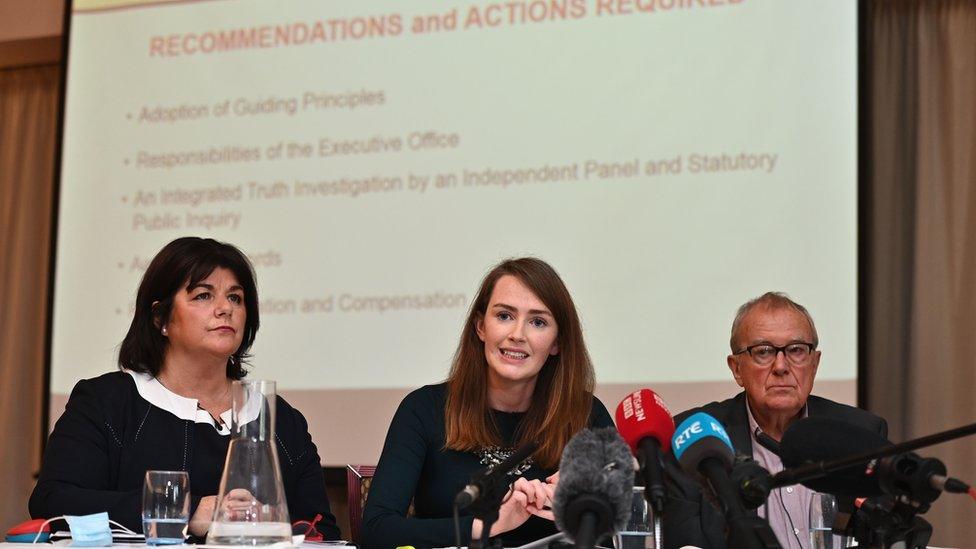
A three-person panel made a series of recommendations last month
Stormont ministers met victims and survivors on Monday morning to brief them on what the executive intends to do.
Ms O'Neill told the assembly that "cherry picking" elements of the report was not an option.
"Unequivocal acceptance and full implementation of the panel's recommendations is the very least we can do for victims and survivors," she added.
Assembly members were told the legislation required to establish the public inquiry can only be progressed in the next mandate but that the executive would initiate "any groundwork required now".
She confirmed that discussions would take place with HMRC and the Treasury to ensure payments would not be means-tested and that welfare benefits are not affected.
Ms O'Neill said it would prove "complex and cross-cutting work".
"We must remember that this will be a difficult and emotional day for many," she said.
"Our thoughts are very much with all the victims and survivors, who were so grievously failed, and have lived for many years with the unimaginable pain and trauma inflicted on them."
'Emotional, challenging period'
Maria Cogley, who was adopted from the Marianville Mother and Baby Home in Belfast, described the recommendations as "ground-breaking".
"We have reached this point after an emotional, challenging and traumatic period of months of hard work, commitment, blood, sweat and tears," Ms Cogley said.
"All institutions involved, including religious institutions, will be expected to cooperate from the onset of an independent panel and if they choose not to, they will be compelled to do so by the full statutory inquiry."
Ms Cogley said the first and deputy first ministers "made many reassurances" that legislation will ensure "full access to the records from social services and the institutions involved".
"We have a long way to go fighting for the rights of mothers coerced into adoption, adopted adults and those that were held in institutions. Together, our equal voices will be strong and we will hold them to their promises," she added.
What did the initial report say?
The research report, published in January, found at least 10,500 women passed through mother-and-baby homes.
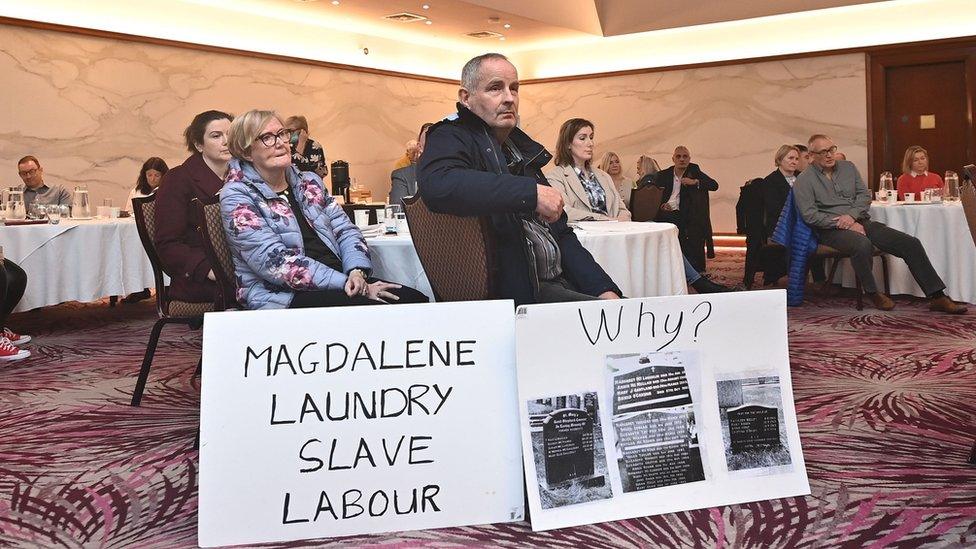
Survivors of the mother-and-baby homes are to receive redress payments
There were eight institutions in Northern Ireland, run by Catholic and Protestant religious organisations.
More than 3,000 women spent time in a Magdalene laundry.
These institutions were, in effect, workhouses and were situated in Londonderry, Belfast, and Newry.
The researchers recommended there should be more investigations into levels of infant mortality among children who were born to mothers in the homes.
They also said there were more questions to be asked about potential illegal adoptions, including the movement of babies across the border with the Republic of Ireland.
Related topics
- Published5 October 2021
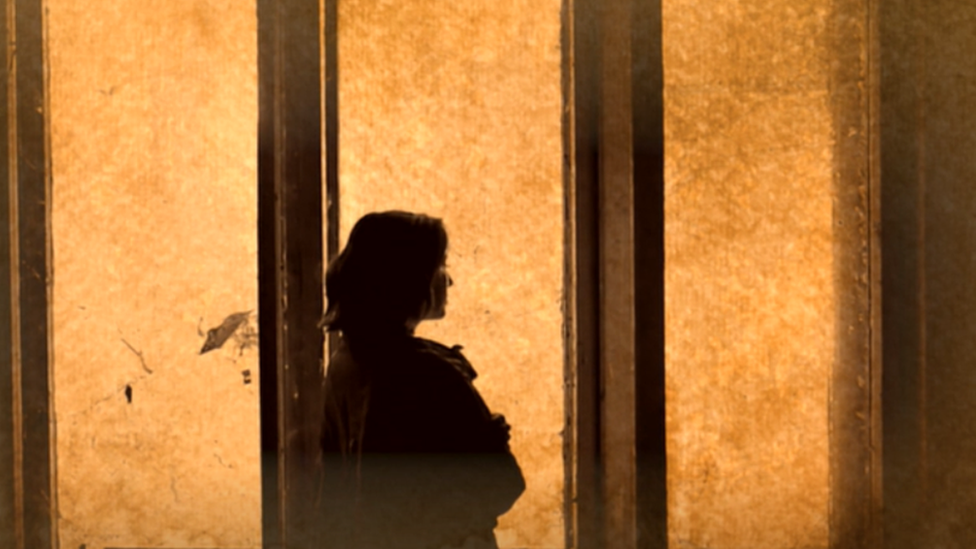
- Published5 October 2021
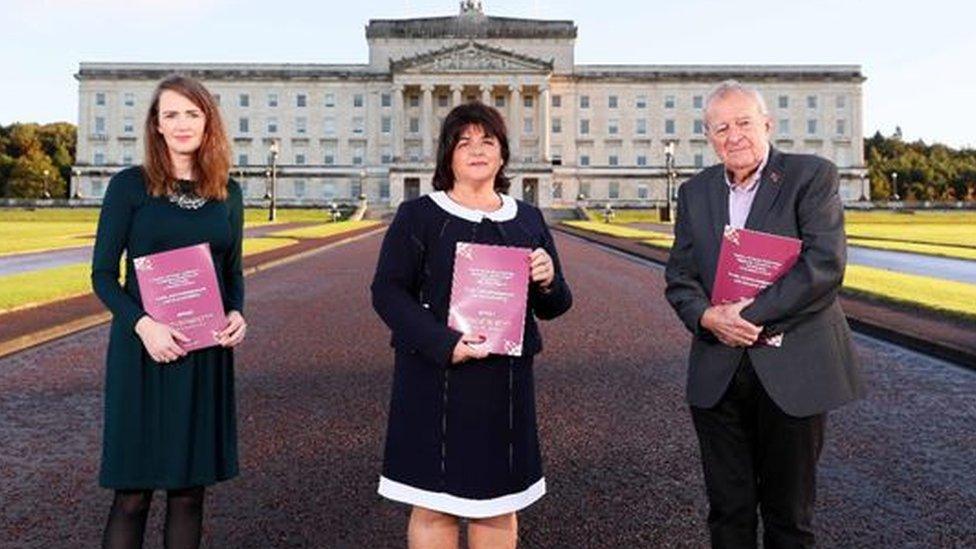
- Published26 January 2021

- Published26 January 2021
